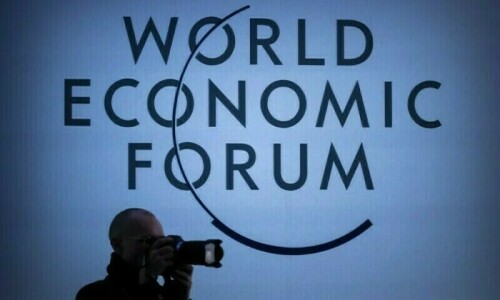VIENNA: The International Atomic Energy Agency announced in Vienna late on Saturday night that Iran had complied with a deal reached last year to curb its nuclear programme in return for the lifting of sanctions imposed by the US, United Nations and European Union.
Iranian Foreign Minister Javad Zarif and US Secretary of State John Kerry met in a Vienna hotel before the sanctions announcement.
“Implementation day” of the nuclear programme deal is a turning point in the hostility between the two countries, and is a prize for both Mr Obama and Iranian President Hassan Rouhani.
The two leaders have faced strong opposition from hardliners at home.
“Today, with the release of the IAEA chief’s report, the nuclear deal will be implemented, after which a joint statement will be made to announce the beginning of the deal,” Mr Zarif was quoted as saying by state news agency IRNA.
“Today is a good day for the Iranian people as sanctions will be lifted.”
Earlier in a related move, Iran freed five Americans, including a Washington Post reporter, as the two countries staged a series of goodwill gestures ahead of the expected announcement of the lifting of international sanctions against Tehran under a nuclear deal.
United States President Barack Obama pardoned three Iranian-Americans charged for sanctions violations and US officials said four others would be released.
Among the Americans being freed are Washington Post reporter Jason Rezaian and Christian pastor Saeed Abedini, while Iranian news media said seven Iranians held for violating sanctions would be freed.
New beginning
The sanctions, mostly imposed in the past five years, have cut Iran off from the global financial system, drastically reduced the major oil producer’s exports and imposed severe economic hardship on ordinary Iranians. Most will be lifted immediately.
Even before the expected announcement that sanctions would be lifted, Iran’s Mehr news agency reported that executives from two of the world’s largest oil companies, Shell and Total, had arrived in Tehran for talks with state firms. Shell denied it.
Under the deal, Iran has agreed to forego nearly all enriched uranium, which world powers feared could be used to make a nuclear weapon.
Once sanctions are lifted, Iran plans to swiftly ramp up its exports of oil.
Tens of billions of dollars worth of Iranian assets will be unfrozen and global companies that have been barred from doing business there will be able to exploit a market hungry for everything from automobiles to airplane parts.
Iran’s expected return to an already glutted market is one of the main factors contributing to a global rout in oil prices, which fell below $30 a barrel this week for the first time in 12 years. Iran says it could boost exports by 500,000 barrels per day within weeks.
The nuclear deal is opposed by all of the Republican candidates vying to succeed Mr Obama as president in elections in November.
Nevertheless, Ted Cruz, a conservative senator from Texas and one of the Republican frontrunners, tweeted in support of the release of Christian convert Abedini.
The prisoner deal was nearly derailed last month by looming new US sanctions on Iran for test-firings of a ballistic missile capable of delivering a nuclear warhead.
But Obama administration officials decided to delay the new sanctions after Mr Zarif warned Mr Kerry that any such censure of Iran could endanger the prisoner swap.
The warming in relations between Iran and the United States is viewed with deep suspicion by US allies in the Middle East, including Israel and Saudi Arabia. It is supported by the US’s European allies, who joined President Obama earlier in his presidency in making the sanctions tighter as part of a joint strategy to force Iran to negotiate.
The US administration says the deal reached last July offered the best possible prospect of ensuring Iran would not develop a nuclear weapon, and could never have been achieved without the support of allies, which was always contingent on a pledge to lift sanctions once Iran complied.
For Iran, it marks a crowning achievement for President Rouhani, a pragmatic cleric elected in 2013 in a landslide on a promise to reduce the country’s international isolation. He was granted the authority to negotiate the deal by Supreme Leader Ayatollah Ali Khamenei.
Published in Dawn, January 17th, 2016















































Dear visitor, the comments section is undergoing an overhaul and will return soon.